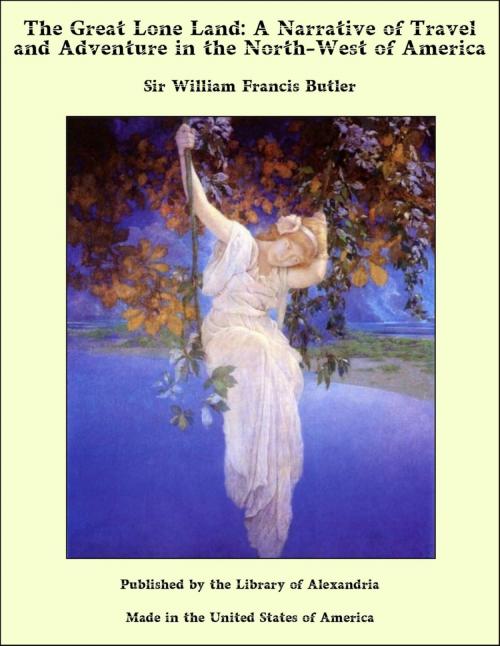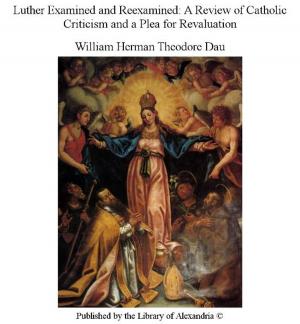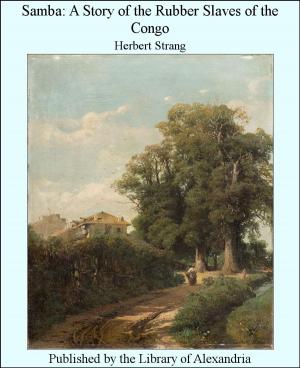The Great Lone Land: A Narrative of Travel and Adventure in the North-West of America
Nonfiction, Religion & Spirituality, New Age, History, Fiction & Literature| Author: | Sir William Francis Butler | ISBN: | 9781465621467 |
| Publisher: | Library of Alexandria | Publication: | March 8, 2015 |
| Imprint: | Language: | English |
| Author: | Sir William Francis Butler |
| ISBN: | 9781465621467 |
| Publisher: | Library of Alexandria |
| Publication: | March 8, 2015 |
| Imprint: | |
| Language: | English |
IT was a period of universal peace over the wide world. There was not a shadow of war in the North, the South, the East, or the West. There was not even a Bashote in South Africa, a Beloochee in Scinde, a Bhoottea, a Burmese, or any other of the many "eses" or "eas" forming the great colonial empire of Britain who seemed capable of kicking up the semblance of a row. Newspapers had never been so dull; illustrated journals had to content themselves with pictorial representations of prize pigs, foundation stones, and provincial civic magnates. Some of the great powers were bent upon disarming; several influential persons of both sexes had decided, at a meeting held for the suppression of vice, to abolish standing armies. But, to be more precise as to the date of this epoch, it will be necessary to state that the time was the close of the year 1869, just twenty-two months ago. Looking back at this most-piping period of peace from the stand-point of today, it is not at all improbable that even at that tranquil moment a great power, now, very much greater, had a firm hold of certain wires carefully concealed; the dexterous pulling of which would cause 100,000,000 of men to rush at each other's throats: nor is this supposition rendered the more unlikely because of the utterance of the most religious sentiments on the part of the great power in question, and because of the well-known Christianity and orthodoxy of its ruler. But this was not the only power that possessed a deeper insight into the future than did its neighbours. It is hardly to be gainsaid that there was, about that period, another great power popularly supposed to dwell amidst darkness-a power which is said also to possess the faculty of making Scriptural quotations to his own advantage. It is not at all unlikely that amidst this scene of universal quietude he too was watching certain little snow-wrapt hamlets, scenes of straw-yard and deep thatched byre in which cattle munched their winter provender-watching them with the perspective scent of death and destruction in his nostrils; gloating over them with the knowledge of what was to be their fate before another snow time had come round. It could not be supposed that amidst such an era of tranquillity the army of England should have been allowed to remain in a very formidable position. When other powers were talking of disarming, was it not necessary that Great Britain should actually disarm? of course there was a slight difference existing between the respective cases, inasmuch as Great Britain had never armed; but that distinction was not taken into account, or was not deemed of sufficient importance to be noticed, except by a few of the opposition journals; and is not every one aware that when a country is governed on the principle of parties, the party which iscalled the opposition must be in the wrong? So it was decreed about this time that the fighting force of the British nation should be reduced. It was useless to speak of the chances of war, said the British tax-payer, speak-ing through the mouths of innumerable members of the British Legislature.
IT was a period of universal peace over the wide world. There was not a shadow of war in the North, the South, the East, or the West. There was not even a Bashote in South Africa, a Beloochee in Scinde, a Bhoottea, a Burmese, or any other of the many "eses" or "eas" forming the great colonial empire of Britain who seemed capable of kicking up the semblance of a row. Newspapers had never been so dull; illustrated journals had to content themselves with pictorial representations of prize pigs, foundation stones, and provincial civic magnates. Some of the great powers were bent upon disarming; several influential persons of both sexes had decided, at a meeting held for the suppression of vice, to abolish standing armies. But, to be more precise as to the date of this epoch, it will be necessary to state that the time was the close of the year 1869, just twenty-two months ago. Looking back at this most-piping period of peace from the stand-point of today, it is not at all improbable that even at that tranquil moment a great power, now, very much greater, had a firm hold of certain wires carefully concealed; the dexterous pulling of which would cause 100,000,000 of men to rush at each other's throats: nor is this supposition rendered the more unlikely because of the utterance of the most religious sentiments on the part of the great power in question, and because of the well-known Christianity and orthodoxy of its ruler. But this was not the only power that possessed a deeper insight into the future than did its neighbours. It is hardly to be gainsaid that there was, about that period, another great power popularly supposed to dwell amidst darkness-a power which is said also to possess the faculty of making Scriptural quotations to his own advantage. It is not at all unlikely that amidst this scene of universal quietude he too was watching certain little snow-wrapt hamlets, scenes of straw-yard and deep thatched byre in which cattle munched their winter provender-watching them with the perspective scent of death and destruction in his nostrils; gloating over them with the knowledge of what was to be their fate before another snow time had come round. It could not be supposed that amidst such an era of tranquillity the army of England should have been allowed to remain in a very formidable position. When other powers were talking of disarming, was it not necessary that Great Britain should actually disarm? of course there was a slight difference existing between the respective cases, inasmuch as Great Britain had never armed; but that distinction was not taken into account, or was not deemed of sufficient importance to be noticed, except by a few of the opposition journals; and is not every one aware that when a country is governed on the principle of parties, the party which iscalled the opposition must be in the wrong? So it was decreed about this time that the fighting force of the British nation should be reduced. It was useless to speak of the chances of war, said the British tax-payer, speak-ing through the mouths of innumerable members of the British Legislature.















